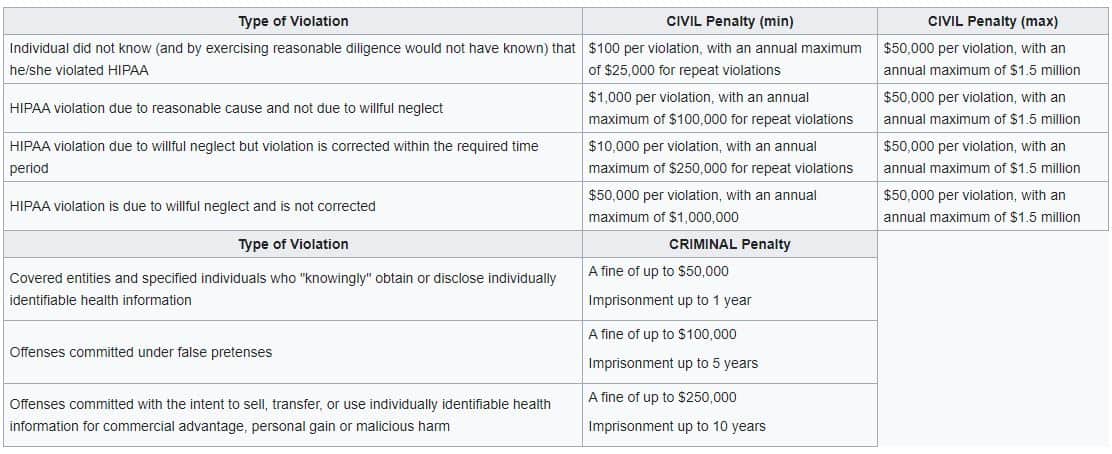HIPAA was introduced in the year 1996. The law was created to secure patients’ information, and according to it, the data of patients used for any purpose such as billing must be kept confidential. The medical information provided by the patient in any manner, i.e., oral, paper, or printed or say any health data that can recognize a patient is protected by HIPAA act.
After knowing HIPAA, the next thing you need to know more about is HIPAA compliance and privacy.
Who needs to follow the HIPAA privacy act?
What are the consequences if you are not compliant?
Not following a privacy protection law can cost you high. Types of violation including fines and penalties are shown in the following chart:
Moreover, the violating person can also be sent to jail. The jail punishments range from 1 year to 10 years.
General data protection regulation compliance
According to new privacy laws, you also need to be GDPR (General Data Protection Regulation) compliant. You are required to make a list of data stored by your website on visitors. Some more rules also need to be followed, but if you are compliant, there is nothing to worry about.
How to ensure compliance and privacy?
To secure the data, follow the following steps:
- Use data security and strong encryption
- Only a few employees who really need data must be allowed to access the information.
- Those who can access the data must use complex passwords.
- Use two-step authentication and e-signatures
- To avoid a data breach, make the data accessible to the minimum number of people plus don’t discuss the information in front of anyone even orally.
- In case a data breach occurs, use HIPAA breach notification rules and inform the individuals about it.




